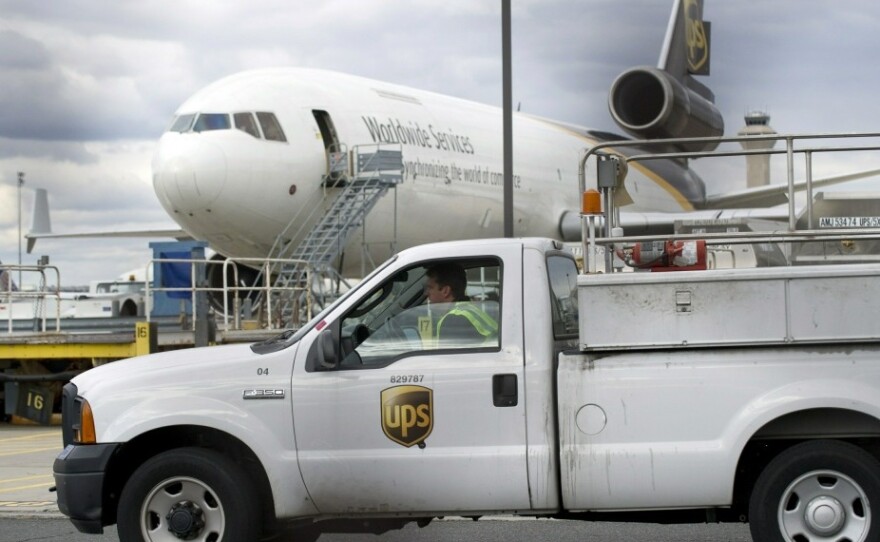The discovery of explosives on two cargo planes has led to calls for tougher screening of air freight, but shippers say that screening everything shipped by air would slow things down and be extremely costly.
The 9/11 Commission recommended screening all cargo that goes on passenger planes. So in 2007, Democratic Congressman Ed Markey of Massachusetts helped pass a law that requires total inspections, which started in August. He says this most recent incident is a sign that Congress should go further.
Legislation for inspecting cargo planes does not have to be identical to the law for screening cargo on passenger planes, he says, "but I don't think we can be too completely reliant on intelligence provided to us by Saudi Arabia or other countries."
Markey says he will introduce legislation to that effect. But cargo flights carry at least four times as much freight as passenger planes, so that would mean a massive expansion of the inspection system.
Brandon Fried, who represents shippers as head of the industry group Airforwarders Association, says that just inspecting the 7 billion pounds a year that goes on commercial flights is expensive.
"We've invested hundreds of millions of dollars to accomplish the task that was mandated by the 9/11 legislation," he says.
Fried says that in the end, the costs to pay for devices that detect explosives and radiation will be covered by consumers.
While the TSA inspects passengers and their luggage, shippers and airlines inspect the cargo that rides in the hold of those passenger planes. Much of this work occurs through the Certified Cargo Screening Program. Shippers who sign up become "trusted" and can speed their packages along by following a series of protocols, according to Hans Weber of the consulting firm Tecop.
"Once you're a trusted shipper, you also have certain responsibilities for notifying authorities if something is amiss," he says.
This allows industry to police itself without the need for big TSA inspection stations. But it also creates a disadvantage for smaller shippers, according to Michael Whatley of the Air Cargo Security Alliance, a trade group.
"They do not have the wherewithal to get the screening equipment put in place at each of their facilities," he says.
So, Whatley says, a shipper in southern Illinois, for example, might have to truck his packages up to Chicago and have them checked out at the airline's facility at O'Hare Airport. That adds time and expense. And, Whatley says, the program also has limited capacity; every day, cargo is "stranded" because it isn't inspected in time, so it has to wait for the next flight, possibly the next day.
Industry always claims security is too expensive, Markey says.
"The chemical industry has not wanted to put extra security around its chemical plants. The nuclear power industry has not wanted to put extra security around its nuclear power plants," he says.
That's why Congress must mandate these steps, Markey says. Shipping analysts say the Sept. 11, 2001, attacks focused attention on passenger screening. Now the focus will shift to cargo until another plot exposes a new weakness.
Copyright 2022 NPR. To see more, visit https://www.npr.org. 9(MDAzMjM2NDYzMDEyMzc1Njk5NjAxNzY3OQ001))







